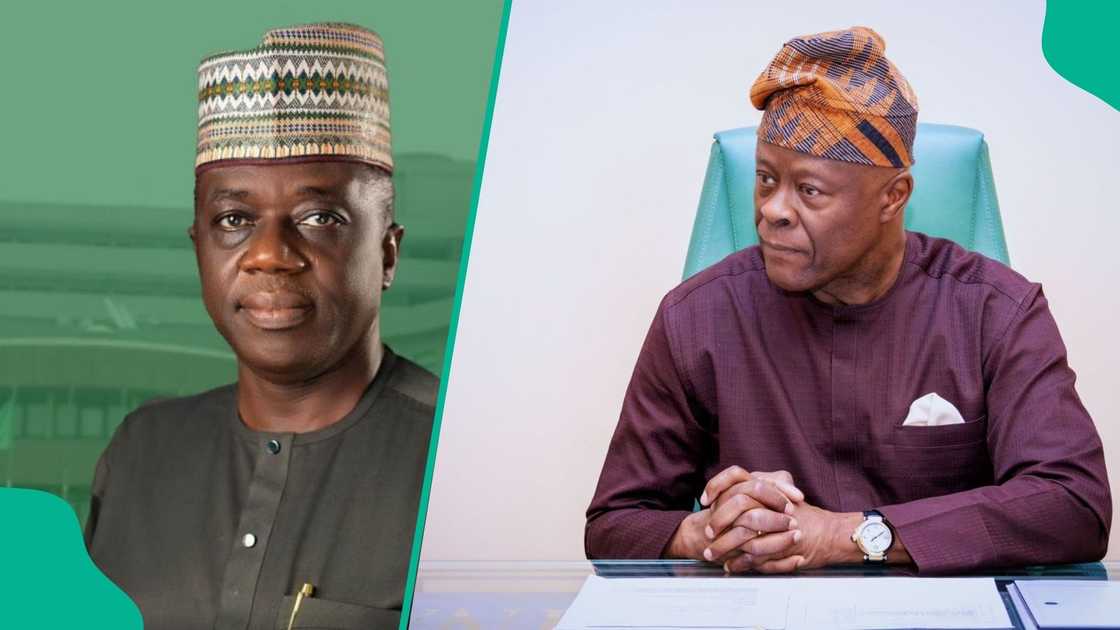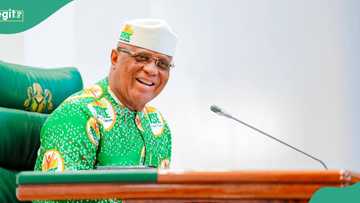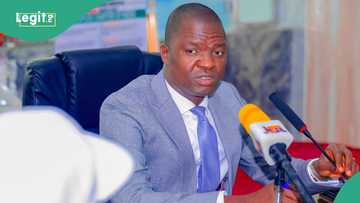Tinubu's Minister, Accountant-General, Told to Resign, Details Emerge
- CEAPF demanded the resignation of Finance Minister Wale Edun and Accountant-General Shamsedeen Babatunde Ogunjimi over unpaid 2024 budget projects
- The coalition warned it would approach the National Assembly for a vote of no confidence if the officials refused to step down voluntarily
- CEAPF condemned the financial and moral impact on contractors, small businesses, and workers, calling the situation a dereliction of duty
The Coalition for Equity and Accountability in Public Finance (CEAPF) has demanded the immediate resignation of Finance Minister Wale Edun and Accountant-General of the Federation, Shamsedeen Babatunde Ogunjimi, over alleged failure to pay contractors for projects fully executed and captured in the 2024 budget.
Coalition cites dereliction of duty

Source: Twitter
In a statement on Wednesday, September 3, cited by Legit.ng and signed by CEAPF President Comrade Segun Daramola and Secretary-General Comrade Isaac Idachaba, the group warned it would petition the National Assembly to pass a vote of no confidence should the officials refuse to step down voluntarily.
“This is no longer a mere administrative delay; it is a calculated dereliction of duty. Contractors have completed projects backed by law, approved and funded under the 2024 Appropriation Act, yet they are left unpaid and forced into bankruptcy. Meanwhile, the Federal Government is executing and paying for projects not captured in either the 2024 or 2025 Appropriation Acts. This is unlawful, reckless and unacceptable," the statement read.
Calls for parliamentary action
CEAPF said the discrepancy highlights a worrying pattern in Nigeria’s fiscal management, where legal obligations are ignored while off-budget expenditures are prioritised.
“What we are witnessing is a distortion of governance itself. Appropriation is the foundation of democracy, the guarantee that public money is spent as authorised by the people through their representatives,” the group declared.
“If ministers and accountants can disregard this at will, then the National Assembly must rise up. It is the duty of lawmakers now to assert their authority by removing those who have so flagrantly undermined them.”
Contractors and small businesses hit hard
CEAPF noted that contractors across the federation face crippling debts, many having borrowed at high interest rates from commercial banks to deliver government projects.
The coalition said this neglect has triggered economic distress, affecting small businesses, suppliers, and workers dependent on the contracting system.
“Government contracts are supposed to stimulate the economy. Instead, under the stewardship of Mr Wale Edun and the Accountant-General, they have become instruments of ruin. Firms are collapsing, workers are being laid off, and banks are foreclosing on loans. This is economic sabotage by negligence,” the statement said.
Coalition demands resignation
The coalition argued that the crisis is both a financial and moral issue, insisting resignation is the only honourable course for the finance minister and accountant-general.
“Our democracy cannot survive on promises that are never kept. If a government can budget for projects, award them, certify them, and then refuse to pay while diverting resources to unbudgeted ventures, what message does it send to citizens and investors? It tells the world that Nigeria is lawless and that contracts mean nothing. That is why we must draw a line here.”
CEAPF urges presidential intervention
CEAPF called on President Bola Tinubu to intervene, warning that his reputation as a reformer is at stake.
“The President has spoken of fiscal discipline and reform. This is the moment to prove that those words have meaning. If his team members cannot carry out the most basic function of governance, honouring the budget and paying for executed contracts, then they must step aside for those who can,” the group declared.
Observers say the controversy over unpaid contracts has become more than a financial dispute. It is now a test of whether Nigeria can uphold the rule of law in its fiscal affairs and whether its leaders respect the authority of parliament.
Source: Legit.ng





